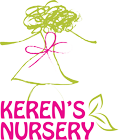When it comes to toys, children can’t help but be drawn to them to such an extent that almost anything can be a toy when a child puts their mind to it. However, there is more to toys than just fun and enjoyment for kids. According to research, toys can largely help children explore the world around them, learn vital life skills, and express their emotions effectively. These skills can be great for children when starting nursery or school, as they will already have an idea of methods and techniques to aid social environments and interactions. So why are toys specifically important for a child’s development? Below we’ve listed some key benefits of toys for children, shedding light on the impact different toys can have and how your child can be set up to excel later in life.
How Can Toys Improve A Child’s Development?
There are many benefits associated with children’s toys that can greatly improve their cognitive, emotional, and motor development. The types of toys a child is exposed to may impact their growth more than we believe. A child exposed solely to art-based toys, for instance, will be more likely to master artistic techniques than a child who plays only with car toys. It is therefore important to consider the toys we give to children and the varying benefits that each provides. Here, we’ve outlined the different advantages of toys to give you more of an idea of these considerations.
Enhance Problem-Solving Skills
Toys such as sensory blocks, puzzles, colour-matching games, and shaped holes can greatly develop and enhance children’s problem-solving skills. When trying to build blocks or connect two things together, children will learn to test out different methods and follow specific sequences to achieve the desired result. With puzzles, for example, logic is developed as the brain picks up on recurring patterns. Problem-solving skills are therefore a key benefit of some toys.
Encourage Emotional Maturity
As children connect with their toys and develop a healthy bond, emotional maturity will be encouraged. Dolls, figurines, stuffed animals, and action figures in particular are generally toys that children interact with most and, consequently, become attached to. Yet this affection is healthy as it promotes emotional connections, love, and attention. It has also been suggested that those who spend more time playing with toys, tend to have a happier childhood. The encouragement of emotional maturity is thus a vital skill throughout a child’s development. As toys can largely support this, it is certainly worth presenting your child with a range of toys in order for them to discover different connections.
Improve Creativity
Also, toys can improve a child’s creativity both in an artistic sense and a cognitive one. With crayons, paint pots, and craft kits, kids can learn to express themselves through different media, which can, in turn, improve how a child communicates or rationalises various emotions. On the other hand, through curiosity and exposure to new things, toys can improve a child’s psychological creativity. When they adapt to challenges, kids learn how to think outside the box which can come in handy throughout their childhood as they constantly face new environments.
Refine Motor Development
A child’s motor development is another key advantage that comes with the familiarisation of toys. Hand-eye coordination in particular can hugely improve when playing with toys as children practise motor skills the more they interact with the objects. Toys can benefit both a child’s emotional and physical development in this way, which might come as a surprise to some parents or carers.
Develop Senses
Last but not least, toys are a great way to develop a child’s senses as they are exposed to engaging objects that are purposely designed to encourage growth. Many children’s toys have sounds, vibrant designs, and different textures in order to connect to the child’s senses. A popular example is a rainmaker, which targets motor development as well as the senses. These skills will prove invaluable throughout a young person’s childhood so the earlier they are developed, the better. Many toys are therefore important for various developmental reasons and can be beneficial on both an educational and an enjoyment level.









